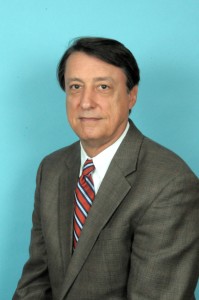Executive Summary
Oxley was nowhere in sight while his client, Rick Ketchum, chairman and chief executive officer of FINRA, was alternately raked over the coals and then thrown softballs by Mike’s friends during a three-hour hearing on Sept. 13th. Oxley’s portrait seemed to offer moral support as he benevolently viewed the proceedings from above. Much more tasteful than a sidewalk billboard, the Oxley portrait, like most adorning ornate hearing rooms around Capitol Hill, offered mute testament to FINRA’s deep pockets in this legislative fight between David and Goliath.
The hearing offered a preview of what will happen over the coming weeks, months, and possibly years as FINRA and its opponents gear up for a slugging match that is now inevitably plunging into the arcane prose of legislative drafting and congressional markups. The discussion draft of a self-regulatory organization (SRO) for investment advisers, offered by current Committee Chairman Spencer Bachus of Birmingham, Alabama, himself an Oxley protégé, could have been lifted from the 1938 template for the old NASD, save for some clever exemptions to pick off deep-pocketed opponents like the mutual fund, venture capital and hedge fund industries. Divide and conquer.
However, NAIFA reported that two-thirds of its members sell variable annuities, and 40 percent of them are now registered as investment advisors. So they have been touched already by FINRA. Other than a fleeting reference in the bill that would require the SRO to craft rules consistent with the fiduciary standards applicable to investment advisers under the ’40 Act and state law, FINRA would have a free hand to carry over many of the specific rules from the broker side and water them down into meaningless regulatory gruel. Apparently the lesser choice between two evils – working with a FINRA clone -- is preferable to the devil you don’t know. The fear of liability that comes with unbridled, common-law fiduciary territory stands in stark contrast to the unbridled joy that many fiduciary advisors feel in adding meaning to their clients’ lives without Big Brother peering over their shoulder.
NASAA, the state securities regulators’ association, also testified, raising a big fuss over FINRA’s lack of cooperation in enforcement actions and sharing investigative information. Responded Bachus: let’s talk afterward and straighten this out. The states have a long history of a scorched earth policy to any reduction in turf, so Bachus may not find it as easy getting the states on board. Bachus and his own Alabama state securities commissioner, Joe Borg, seem to have a hard-nosed respect for each other. “Joe,” Bachus drawled after loudly stating an SRO was needed to avoid future Madoff scandals at the SEC, “would never have let that happen back home.”
Whether the SEC package makes it through the Senate is another question. Although most witnesses at the Sept. 13th hearing openly stated the SRO issue was nonpartisan, this may not be the case on the Senate side. For one thing, the Senate and House march to their own drum, oblivious of what the other is doing. The last time a major securities package went from the House to the Senate without a crisis in the headlines, the Republicans ran both chambers. Senator Phil Gramm, chairman of the Senate Banking Committee at the time, had his own ideas and the final bill barely squeaked through in the last days of the session.
At any rate, independent advisors will need to get their act together before the next round if they want to stop FINRA’s big Mo.’ Otherwise, you may want to put 1736 K Street in your Outlook contacts, and a place to hang a nice glossy photo of a toothy Ketchum grin in your reception area, courtesy of Mike Oxley.





Leave a Reply